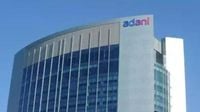In a dramatic corporate saga, the Adani Group has mounted a bold counter-offensive against Hindenburg Research, a firm known for exposing financial wrongdoing, through a covert operation dubbed "Operation Zeppelin." This initiative emerged in response to a scathing report published by Hindenburg in January 2023, which accused the Adani Group of serious financial misconduct, labeling it as "the largest con in corporate history." The fallout was immediate and severe, with shares of Adani Group companies crashing and wiping out over $150 billion in market value, leading to the cancellation of a massive public offering.
The timing of Hindenburg's report raised eyebrows, as it coincided with Adani's plans to finalize a $1.2 billion acquisition of the Haifa Port in Israel. This deal was crucial not just for Adani but also for Israel, marking the largest and most ambitious infrastructure project of the 2020s. The signing of the deal took place on January 31, 2023, with Israeli Prime Minister Benjamin Netanyahu present. However, as the Hindenburg controversy unfolded, a private conversation occurred at the Haifa port, where a top Israeli official questioned Adani about the allegations. Adani firmly dismissed the claims, stating they were "absolute lies," a response reportedly witnessed by Eshel Armoni, the outgoing chairman of the port and a former high-ranking Mossad official.
Some insiders within the Israeli establishment speculated that the Hindenburg report was a deliberate attempt to undermine the Haifa port deal, which was seen as strategically vital for the India-Middle East-Europe Economic Corridor, a counterweight to growing Chinese influence in the region. Back in India, Adani quickly moved to rebuild investor confidence by trimming debt through early repayments, cutting back on pledged shares, and attracting new equity from both promoters and marquee investors.
Amidst this financial turmoil, Operation Zeppelin was launched—a covert investigation reportedly involving assistance from an Israeli intelligence agency. Sources indicate that the goal was to uncover the true backers of the Hindenburg attack. Surveillance teams began monitoring Hindenburg's New York offices and its founder, Nathan 'Nate' Anderson, a certified financial analyst. Investigators uncovered a complex network of activist lawyers, hedge funds, journalists, and political influencers, some of whom were allegedly connected to Chinese interests or powerful figures in Washington.
One significant breakthrough occurred in Oakbrook Terrace, a suburb outside Chicago, where investigators discovered encrypted communications linking private asset management firms with activists across India, the U.S., Europe, Canada, and Australia. In January 2024, Adani was personally briefed on the covert operation during a private visit to Switzerland. Instead of reacting with noise, Adani responded strategically, assembling a team of attorneys and intelligence consultants to work alongside those conducting surveillance in the U.S.
In Ahmedabad, a high-tech command center was established, staffed with cyber experts and analysts tasked with tracking digital trails and gathering data. Legal teams operated across international capitals, piecing together a global counteroffensive against the narratives propagated by Hindenburg. By October 2024, the effort had produced a comprehensive 353-page dossier detailing the alleged network behind the anti-Adani campaign.
As the investigation continued, leaked documents emerged, suggesting connections between U.S. agencies and media platforms that were promoting anti-Adani narratives. In late November 2024, the U.S. Department of Justice and the Securities and Exchange Commission charged Gautam Adani and key executives with participating in an alleged bribery scheme to secure renewable energy contracts in India. The Adani Group has categorically denied all allegations.
In the face of these challenges, the Adani Group decided to go on the offensive, preparing to launch a lawsuit in the Southern District of New York against Hindenburg Research and Nathan Anderson. A seven-page legal brief was reportedly sent to Hindenburg's office at 295 Fifth Avenue in Manhattan. While a meeting between Adani's legal team and Hindenburg was proposed, it remains unclear whether it ever took place.
In a surprising turn of events, on January 15, 2025, just days before the second anniversary of its report on the Adani Group, Hindenburg Research announced it was shutting down operations. This closure marked a significant moment in the ongoing corporate battle, highlighting the complexities and stakes involved in modern business confrontations.
As Operation Zeppelin unfolds, it illustrates a multifaceted approach that combines business strategy, legal maneuvers, and cyber intelligence, showcasing how Adani has risen from the brink of collapse to reclaim a foothold on the global stage. The full extent of Operation Zeppelin may never be fully revealed, but its impact on the corporate world is undeniable, representing one of the boldest comeback strategies in recent memory.


